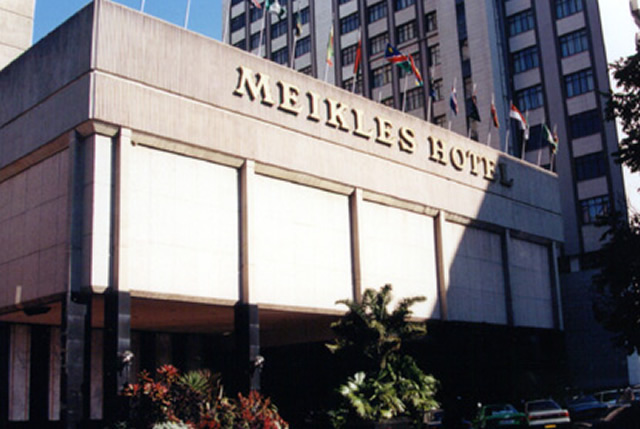Editorial Comment: Government’s ebola response laudable

 Zimbabwe has to take seriously the present outbreak of ebola in some parts of West Africa, the first of around 20 outbreaks that has moved out of control in major urban populations and the first where communities affected are unwilling to follow medical advice and are thus helping the virus to spread. So the decision by Government to monitor everyone coming from an affected country, including quarantine for up to 21 days where necessary, does make sense and does follow similar decisions made by many other countries, including now Nigeria which has seen a small outbreak from imported cases inadequately dealt with.
Zimbabwe has to take seriously the present outbreak of ebola in some parts of West Africa, the first of around 20 outbreaks that has moved out of control in major urban populations and the first where communities affected are unwilling to follow medical advice and are thus helping the virus to spread. So the decision by Government to monitor everyone coming from an affected country, including quarantine for up to 21 days where necessary, does make sense and does follow similar decisions made by many other countries, including now Nigeria which has seen a small outbreak from imported cases inadequately dealt with.
Ebola is not easy to transmit; you have to have contact with body fluids or blood from an infected person or the body of a person who died from ebola.
Proper isolation wards and adequate protective clothing for health workers, care by families and friends of infected people, and plenty of soap and water in hit communities work. But it does kill around two thirds of those infected so it is important to stop it spreading.
Tropical Africa has seen around 20 outbreaks of ebola since the first diagnosed case in 1976 in a village near the Ebola River in the Democratic Republic of the Congo, and each outbreak was first contained and then eliminated by stopping new infection and waiting for those already infected to get better or die.
This was possible because governments in a swathe of countries — DRC, Uganda, Sudan, Congo Republic and Gabon — were able to move fast enough into the remote rural villages where the outbreaks occurred and were able to take effective action; modest aid from outside was usually given and was helpful but more critically the people in the hit villages followed advice and rules and so were largely able to save themselves and their families.
The present outbreak started in Guinea, where it has started dying down after proper action was taken late about six months after the first case, and spread through porous borders to Liberia and Sierra Leone, where the authorities are having to deal with a refusal by far too many people to trust medical experts and take advice and so are seeing the disease spreading rather than retreating.
Interestingly the four countries with borders with these three — Guinea Bissau, Senegal, Mali and Cote D’Ivoire — have not had infections. Closed borders, active monitoring, and other precautions have so far worked. Ghana, the next country along the coast, has set up units in three hospitals, quarantines anyone it suspects and has sent samples for testing from people who show a symptom and who could have been in contact with an ebola patient.
Ghana has seen no cases, but is obviously ready if one walks, flies or drives in. Nigeria, which has had 14 cases and six deaths, half of them Nigerian doctors and nurses, has tightened up massively after two sick Liberians were not adequately isolated and seems to have the small outbreak there under control.
Africa has to live with ebola. Fruit bats have been identified as the reservoir and monkeys and apes can become as sick as humans. Preparing a dead infected animal has been the source of each human outbreak. So there will be the odd case, but almost always in some remote rural area at first.
We need in Africa to know how to cope. And that means taking effective action swiftly at the very beginning, as the DRC is doing right now in a remote village where another independent outbreak has been spotted but which is being dealt with properly and is not generating headlines.
If Guinea had done the same in December last year and January this year in that first village there would be no West African outbreak right now.
So the Zimbabwe Government’s decision to follow best practice cannot be faulted. We hope that all inconvenienced by it, and they will be few in number, will understand. We should not panic, but we must be careful.









Comments